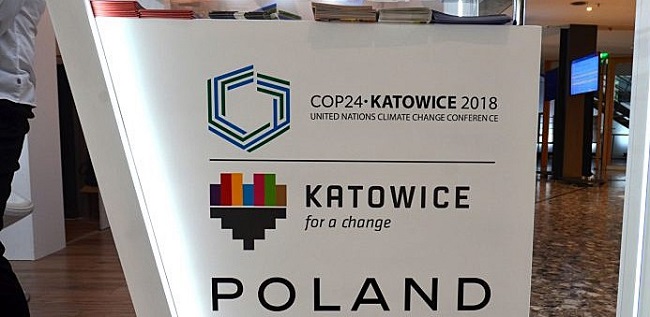Negotiators were preparing to work well past the official close of the UN Climate Change Conference in Katowice in the evening of Friday, December 14, 2018.
The COP Presidency announced late Friday evening that the draft decision for 1/CP.24, 3/CMA.1 and other related decisions would be available after 1 a.m on Saturday, and that the plenary meetings would start at 4 a.m.

This was to address unresolved issues and ensure that a deal eventually emerged as a new draft text had been released hours earlier.
The outline decision contains plans for a common rulebook for all countries, with flexibility for poorer nations.
There are also calls for all countries to increase their carbon cutting commitments by 2020.
Most ministers believe the strength or weakness of the final outcome is still in the balance.
Among the key issues not yet decided is the question of loss and damage.
This issue has bedevilled climate negotiations for many years as developing countries seek recognition and compensation for the damages caused by rising temperatures.
The idea of being legally liable for causing climate change has long been rejected by richer nations, who fear huge bills well into the future.
At these talks, the question of loss and damage only features as a footnote in the text at present, something that has irritated developing countries.
But many observers believed that overall, some progress is being made.
“It was never going to be great, not least because the US is playing a laggard role, but I think we can get a decent outcome, if it’s framed in the right way,” said Alden Meyer from the Union of Concerned Scientists.
Earlier, the former president of the Maldives, and now their lead negotiator, Mohamed Nasheed, made an impassioned plea for urgent progress on cutting carbon.
“It’s just madness for us to allow global CO2 levels (in the atmosphere) to go beyond 450 parts per million, and temperatures to shoot past 1.5 degrees,” he told a press briefing on Thursday.
“That can still be prevented. If we come together on the basis of the emergency facing us, we can do it.
“Every country at this summit will have hell to pay if we don’t.”
Representatives from 196 states are here trying to sort out some very tricky questions pertaining to the rulebook of the Paris agreement which comes into force in 2020.
These are the regulations that will govern the nuts and bolts of how countries cut carbon, provide finance to poorer nations and ensure that everyone is doing what they say they are doing.
It sounds easy, but it is very technical. At the moment countries often have different definitions and timetables for their carbon cutting actions.
However, some progress is being seen in shaping the rules.
“Some of the text that is key to the rulebook, in terms of the transparency of countries reporting their mitigating actions are pretty strong. It is better than it was a week ago,” said one senior negotiator.
